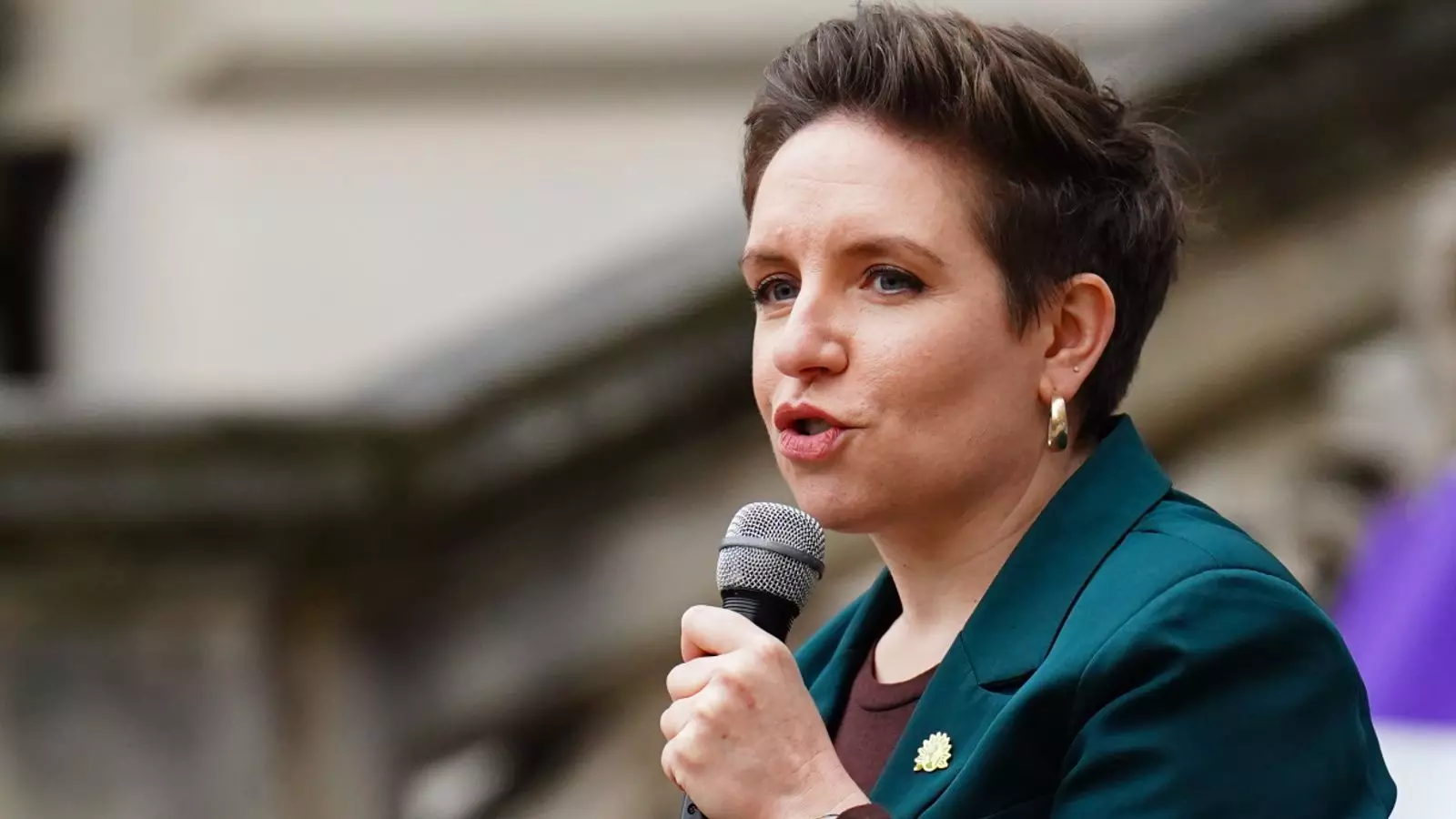In an era where social justice activism has become intertwined with political identity, the Green Party is facing a pivotal moment that raises doubts about its internal coherence on trans rights. As the local elections draw near, questions surrounding the party’s commitment to its pro-trans policies have surfaced following comments from co-leader Adrian Ramsay, placing Carla Denyer in a precarious position. While Denyer is adamant that the party remains unified in its stance—declaring loudly to the public that “trans women are women, trans men are men”—the reality may be more complex than the party would like to admit. This internal conflict illustrates the broader challenges that progressive parties encounter when trying to maintain a cohesive identity amid evolving social discussions.
A Divided Message?
The crux of Denyer’s dilemma lies in Ramsay’s ambiguous remarks regarding gender identity. When leaders of a progressive party struggle to clearly communicate their principles, it doesn’t just sow discord among their ranks; it casts shadows of uncertainty across their voter base. The Green Party, often viewed as a champion of intersectional rights, risks alienating both trans individuals and women who are concerned about the implications of such debates. Denyer’s attempt to clarify the party’s position may have been well-intentioned, but it also exposes the fragility of their unity—a precarious situation just days before a critical election cycle.
What should stand as a resolute party policy now appears precarious. The remarks from one of their visible leaders have created an atmosphere where the party’s actual beliefs on a salient issue could be perceived as inconsistent or confused. It is vital for any political organism, especially one that champions progressive causes, to project a clear and unwavering stance on human rights, lest they risk being branded as opportunistic or disingenuous.
Election Dynamics: The Challenge of Visibility
As the party rallies its members for the upcoming local elections, they face additional challenges—most notably, a significant ceiling on their visibility in comparison to rival factions. The Green Party has made strides in increasing their representation, yet they remain overshadowed by the likes of Nigel Farage, whose media prowess and celebrity-like politics have propelled him into the limelight, securing a loyal following for his Reform Party. Farage’s success typifies how charisma can impact political fortunes. This calls for introspection within the Green Party: can Grassroots activism alone carry them over the threshold of mainstream recognition?
In the hard-fought local election battle, the Green Party claims to be buoyed by grassroots momentum, seeking to leverage local discontent against the Conservatives. While they’re contesting almost all county council seats, the question remains—will the voters see them as a worthwhile alternative? The Greens’ message may resonate on environmental issues, but trans rights and other social justice concerns are haunting them, as they stand on the precipice of their own narrative failing to align with their claimed values.
The Intersection of Activism and Policy
Denyer’s reflections on the need for a nuanced understanding of gender identity demonstrate a much-needed shift toward inclusivity but also suggest that there are diverging views—even within the party—on how to engage with these existential communications. Acknowledging the discomfort of cisgender individuals in framing womanhood raises more questions than it answers. It paints a picture of fragility where progressive values should stand firm.
The Green Party embodies a mix of ideals that celebrate grassroots activism while risking incoherence in formidable discussions of gender and rights. If these conversations don’t translate into clarity and purpose, they stand to lose the support of diverse demographics who seek strong allies in the fight for human rights.
As the Green Party navigates these stormy waters, they must grapple with the essence of who they aim to represent. The urgency of their mission, couched in environmental sustainability and human rights advocacy, necessitates a robust internal dialogue that transcends surface-level unity. True cohesion will only come when each voice within the party aligns harmoniously with the core principles they wish to espouse—a challenge that may define their trajectory moving forward in an increasingly polarized political landscape.


Leave a Reply